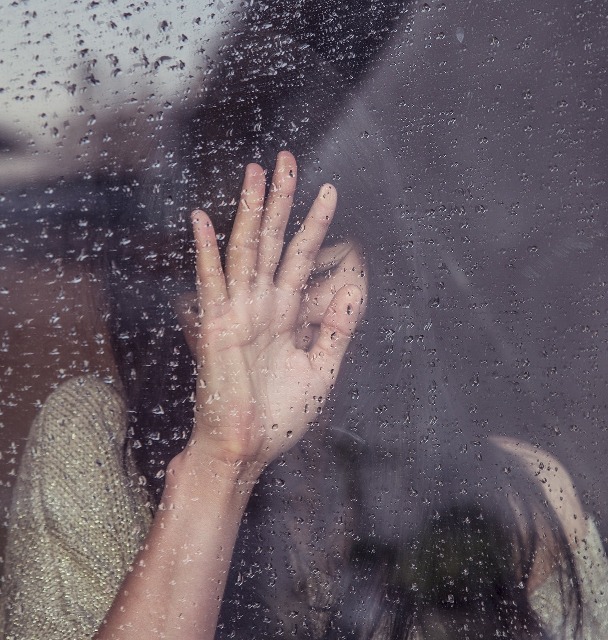“It gets better.” I heard it echoing over and over again in my head.
These words rolled off the tongues of well-intentioned people who had lived through life’s many sadnesses—breakups, job losses, momentary setbacks that pushed them into dark and abysmal sadness. But, “it gets better,” they would insist, describing how they “overcame their depression.”
I constantly fought back the words that longed to sprint from my brain, off of my tongue and into their well-intentioned ears. I would instead force myself to smile and say, “thank you,” followed by my most-hated saying, “I’m doing fine.”
So many fail to understand that depression is not situational—it’s clinical. And depression is not uniform; it’s different for every single person.
Depression isn’t being sad for a month because your girlfriend broke up with you or because you flunked out of nursing school. Depression is struggling to find happiness in the most beautiful of days—knowing that you have every reason in the world to be happy, yet being unable to find happiness anywhere within yourself.
~
In July, happiness became the friend who moved away. We stayed in touch at first, but as time went on we spoke less and less, and, despite our best intentions, inevitably lost touch.
In September, happiness was the foreigner who would sometimes sneak their way across my emotional borders, overwhelming me with feelings of resentment. “You don’t belong here,” my brain would tell my frail and weak happiness. So she would scamper away—back across the border where my brain told her she belonged.
By October, I had become so accustomed to depression’s darkness that l started to become acquainted with her—my new dark passenger. I was okay, I told myself as I began to draw back further into my safe fortress of solitude and misery. I began to turn to my newfound friend, depression, instead of turning to those closest to me.
December was exhausting as I put on a show every day in constant attempts to convince everyone that I was okay. I put on a show for the people who loved me, because I couldn’t stand to see them hurt as a result of my illness. Depression had become my mistress. She was my dirty secret that I couldn’t stand for anyone to know about, the one I ran to when I was sad or angry. The mistress who slowly began to be my priority, my obsession. I wanted to wallow in misery and pain with her, and I couldn’t let my family and friends find out about these secret relations.
I hated her, but she was also my only true companion. What would life be without her? I loathed my relationship with her, but I couldn’t seem to resist her. “Stay in bed instead,” she would tempt me daily, and I could never tell her no. I wasn’t strong enough to pull myself from her seductive grip.
She became my addiction.
By March, depression meant I couldn’t get out of bed. I called in sick to work, because I constantly felt like I had the flu. I couldn’t sleep, and then I couldn’t do anything but sleep. I was constantly canceling on my friends, because socializing with the people I loved the most somehow sounded like an evening in hell. I instead opted for evenings in with my mistress.
By April, I would be proud of myself for leaving the house, then quickly realize how ridiculous that sounded, and so immediately hated myself again. I felt pride when I was able to drive a car without considering crashing it off of a ravine—a constant argument I had with my mistress.
In June, depression had no regard for my life whatsoever. I was simply keeping myself around for those who loved me. My mistress was no longer enough company for me, but I was addicted to her—I couldn’t just give her up.
By August, my secret was out, my affair brought to light for everyone who loved me to see and worry. With our secret out, my mistress and I did what dysfunctional couples often do. We sought professional guidance.
By September, I accepted that I had a problem. I rejected depression as my mistress, because it didn’t have to be some dirty secret. I didn’t have to go through it without speaking to anyone. I accepted that sometimes it’s okay to not be okay.
In October, depression began to become a distant acquaintance. We would keep in touch, but she would leave from time to time and allow me to become reacquainted with happiness. Finally, I no longer felt that I was cheating on my incredibly jealous mistress with her rival.
~
Depression does not just magically go away.
I have accepted that she and I will probably stay distant acquaintances for a long time—if not forever. But I refuse to become addicted to her again—to sink so low that I can barely pull myself back out. I won’t draw myself into her and allow her to consume every part of me.
Living with depression involves pushing yourself not to become comfortable with your dark passenger. We must fight our own fight every day, and not let our depression consume us, like she so longs to do.
~
Relephant Read:
Hey Depression, You can Sit with Me.
~
Author: Emily Cutshaw
Editor: Toby Israel
Image: Pixabay
~







Read 9 comments and reply